Tzang Merwyn Tong
Your project takes a part in our
festival. What is your project about?
Zen Mind Experiment Films is an omnibus of four
experimental shorts by four directors, made under Zen-Mind rules. Rules include
to shoot within 4 hours, edit within 4 hours, and to work only with what is
available in the here and the now for each film. The idea of this experiment is
to make films that embrace Zen principles of minimalism, non-attachment and
being in the present moment.
For context, the Zen-Mind Filmmaking Experiment is a movement and methodology in response to how filmmaking – as an art form has become increasingly sacrificial, conditional and unsustainable. This method embraces minimalism, non-attachment and making films using whatever is available and using the as-is, the thus-ness and such-ness of things in the present and in the now, rather than to waste energy on acquiring funds, securing cast, equipment and other excessive entanglements associated with filmmaking. Our project is really an experiment to see if filmmaking can be liberated from conditions and external control – and be a practice for personal expression, unfiltered and free.
I was inspired by Zen Buddhist philosophy. I wanted to explore how films can be made in the now instead of always focusing on what we need and what we have to do or have to have in order to make the film we want to make. Filmmaking should not need to be so entangled and conditional. Consider us akin to the Dogme95 filmmakers or the pioneers of the French New Wave movement, but with a focus on mindfulness and introspective expression inspired by Eastern Philosophy.
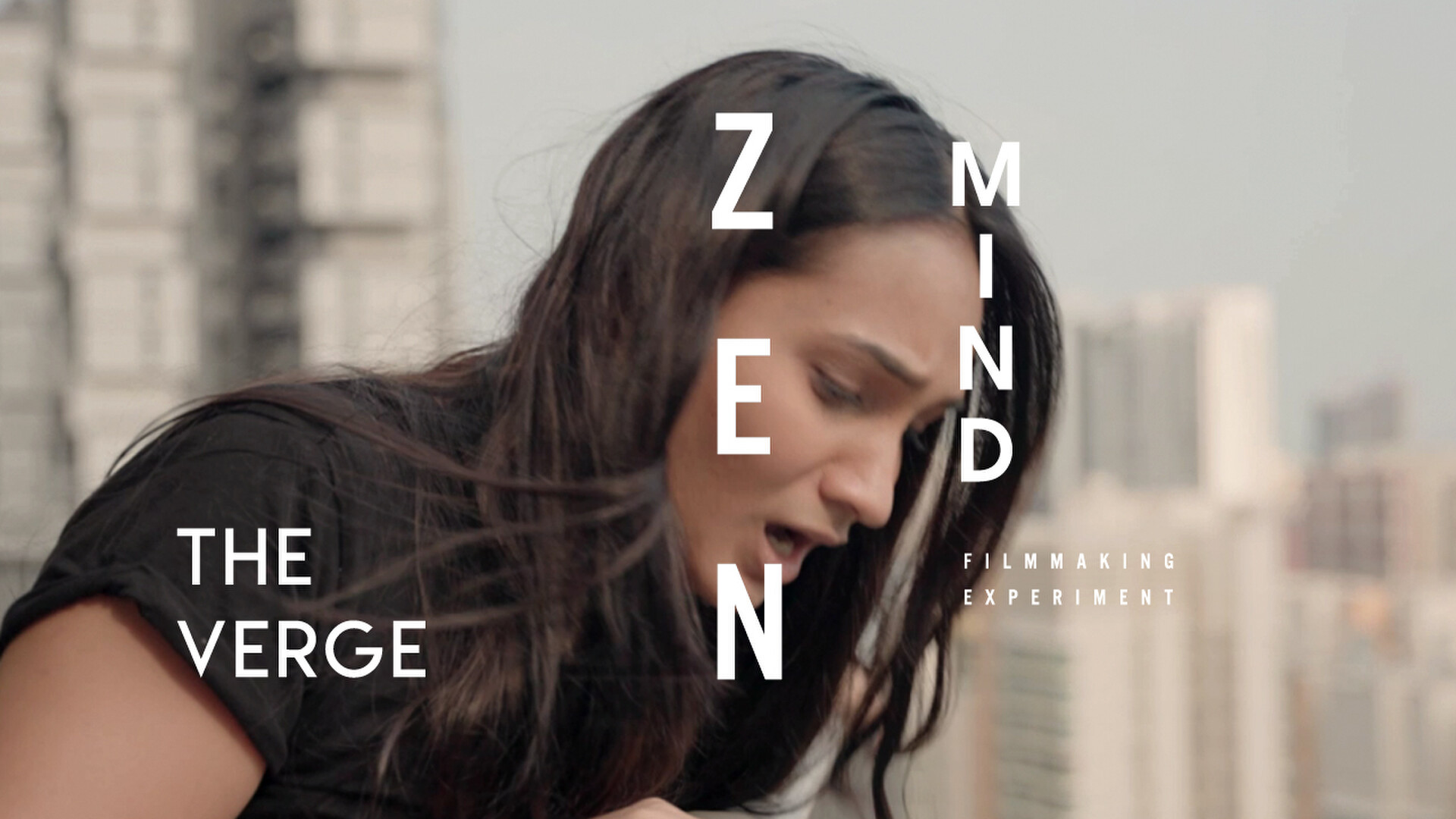
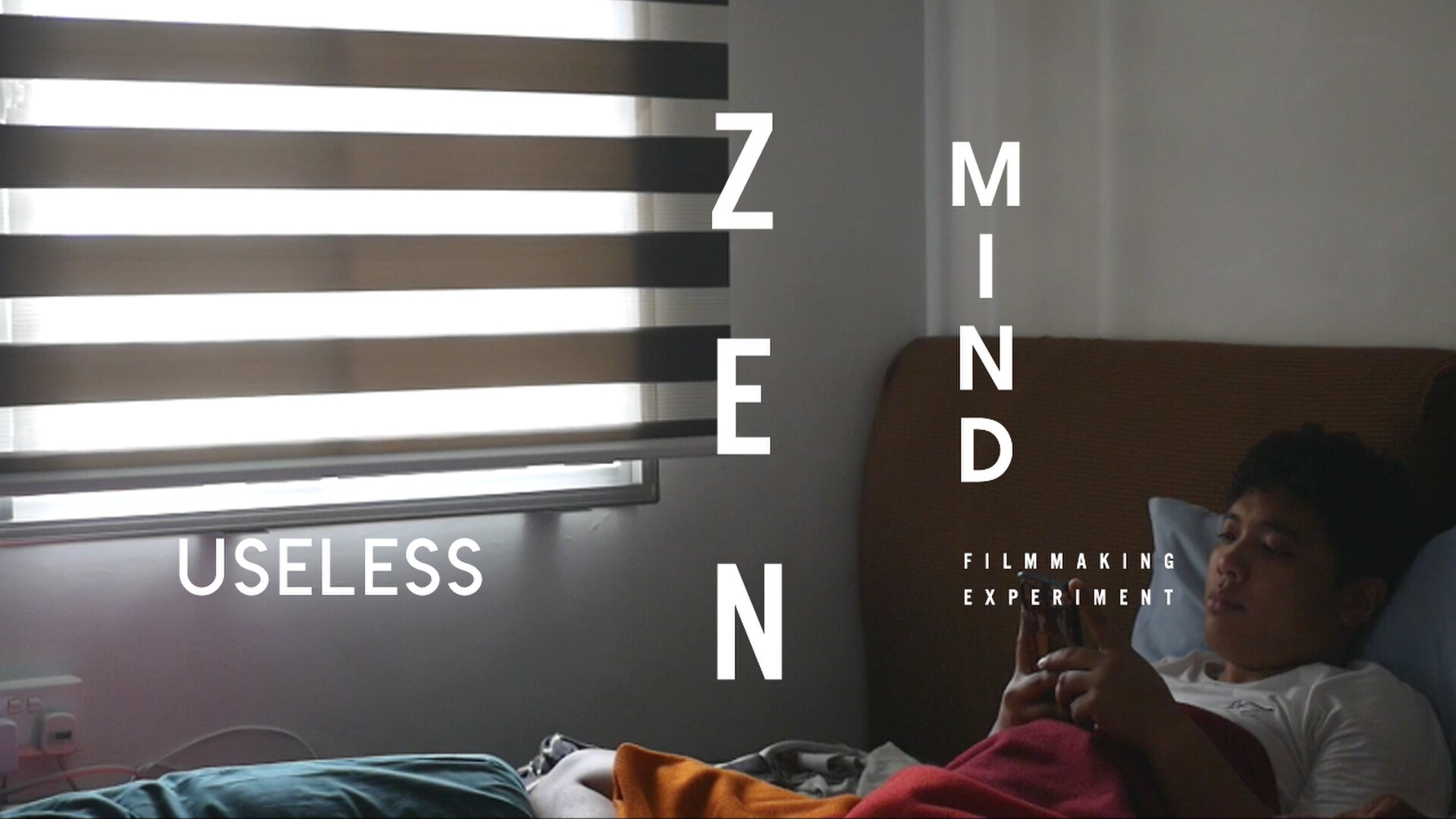
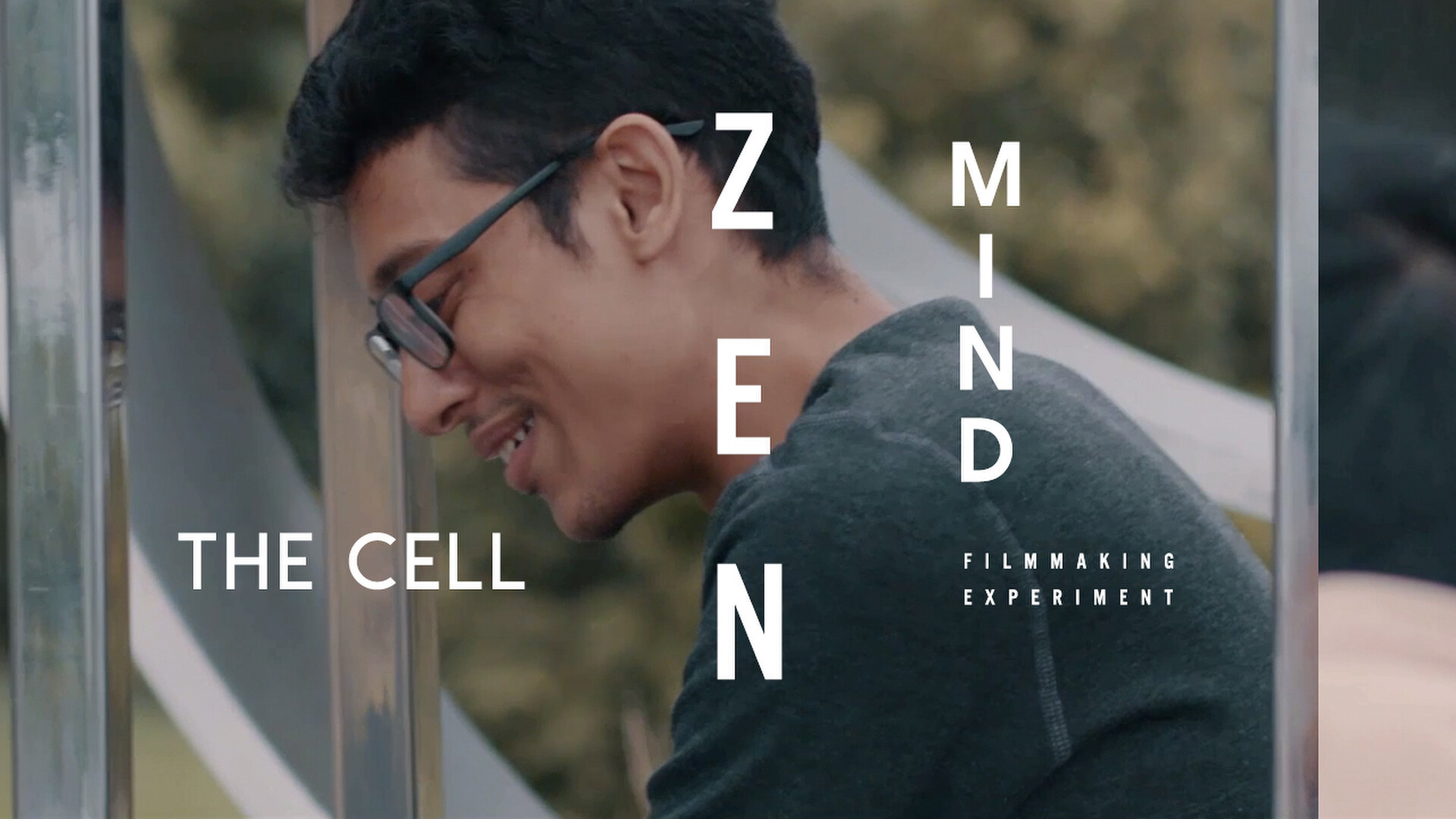
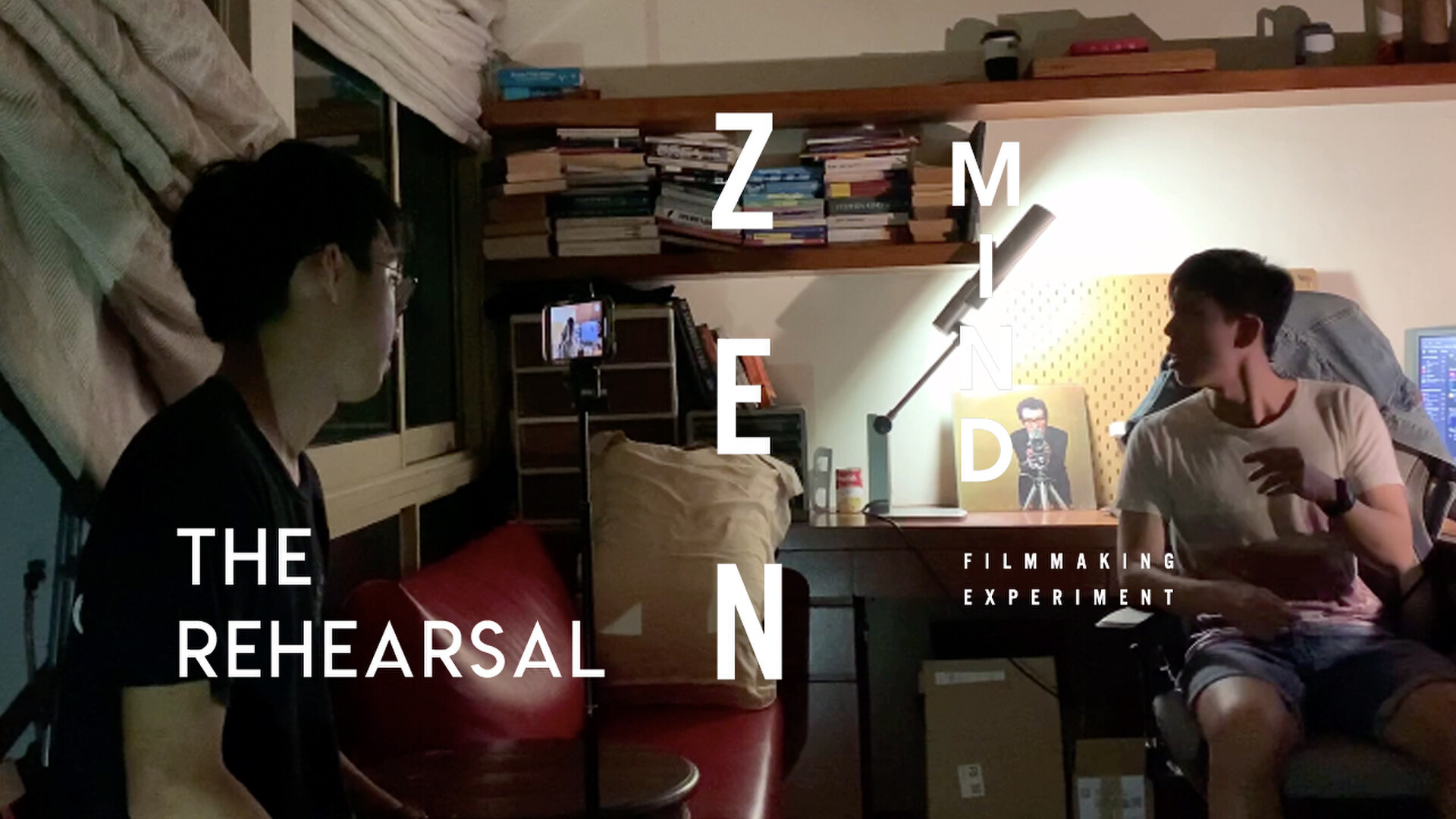
What were your requirements for directors to take a part
of your film?
The whole project started as an experiment.
I wanted to discover what kind of films can come out of this experiment, so I
chose different filmmakers with different levels of experience. Darshan
Kunasagran who directed ‘The Verge’ is a former student of mine with some
industry experience directing, producing and editing corporate videos;
Syafique, the director of ‘Useless’, is a new filmmaker that has just completed
military service and wondering what lies ahead for him in this world; Zach, the
director of ‘The Cell’ is an experienced independent filmmaker who has shot and
edited a number of narrative shorts, and lastly Matthaeus Choo, he’s not a
filmmaker at all. He’s a film critic who loves films
and wants to try his hand at making a film with his handphone camera.
And for me, I wanted to see what kind of films can come from experienced directors who are used to shooting with support from a crew, but now with every condition reduced to its minimum. Also, what kind of film can come out of a completely new director shooting with a beginners’ mind? Will they just be poetic films because of how ‘Zen’ is often associated with stillness and ‘arthouse’? Or can different genres be born out of this.
How did you communicate with the directors?
It is not easy to communicate Zen
philosophy, and I want to avoid abstract woo-woo terms with my filmmakers.
Filmmaking is about making things real. I need to carry this creed into the
method of Zen-Mind Filmmaking.
Inspired by the Dogme95 movement, I wrote a Manifesto to help communicate Zen’s application to filmmaking. The Zen-Mind Filmmaking Manifesto is a set of rules that embrace Zen principles of minimalism, non-attachment and being in the here and now. It specifies applications of Zen like how filmmakers can have a plan but not be fixated by it (non-attachment), how filmmakers must not seek additional funding outside what one has, and to work only with the as-is (minimalism), the thus-ness and the such-ness of things in the here and now. Planning for the shoot is allowed but the plan is allowed to change. As with the concept of non-duality in Zen, the environment may not be in your favor, but the filmmaker is to work with and co-create with the environment to create a film and not be fixated by what was already planned. The rules are not meant to restrict the content but rather parameters to protect the filmmaker from excess and the unnecessary that often leads to fatigue and burn out.
The directors were given freedom to make any film they want as long as they fit into the defined parameters in the Manifesto. To prevent filmmakers from using Zen as an excuse to shoot work with low-effort, I added the rule in the Manifesto that films must be whole, with a beginning, a middle and an end. Zen-Mind films cannot be footage, they cannot be episodes or incomplete stories to-be-continued, and they must stand on their own, without a need for an accompanying explanation. This is to protect the integrity of cinema. So that we will not have filmmakers who are just shooting footage to call it zen. The Zen-Mind rules are designed to help filmmakers make films, not achieve, or attain any form of enlightenment. So Zen-Mind Filmmaking serves cinema, not Zen.
What locations did your directors choose for
the project? And why?
It can be observed that the Zen-Mind film
directors chose locations that helped with the storytelling. Perhaps due to the
fact that they are not allowed to raise money to have a crew or hire an art
director or to build or design a set, Zen-Mind film directors chose to shoot on
location, often using the wide shot and background to tell their stories.
Darshan used the greenery of a sky garden for ‘The Verge’, Syafique used
inanimate objects in his room as obstacles to overcome in ‘Useless’, Zach used
a sculpture in a public park in ‘The Cell’, and in ‘The Rehearsal’, Matthaeus used
his room almost like a living entity to weave a psychological horror about
about an actor who cannot escape his own mind.
This changes the mindset of the filmmaking. Filmmakers become very aware of their background and realise that they are
in
the environment, co-creating a film
with
the environment, not according to what is scripted, but
with
what the universe has co-scripted for them.
Why should distributors buy your film?
This is the first of many future Zen-Mind Experiment
Films. We are part of a film movement that is still trying to find itself,
involving a group of up-and-coming film directors. As a distributor, you will
be distributing a piece of history - the first four experimental shorts that
started it all. You get to be part of the first chapter of a film experiment
that is new and on-going.
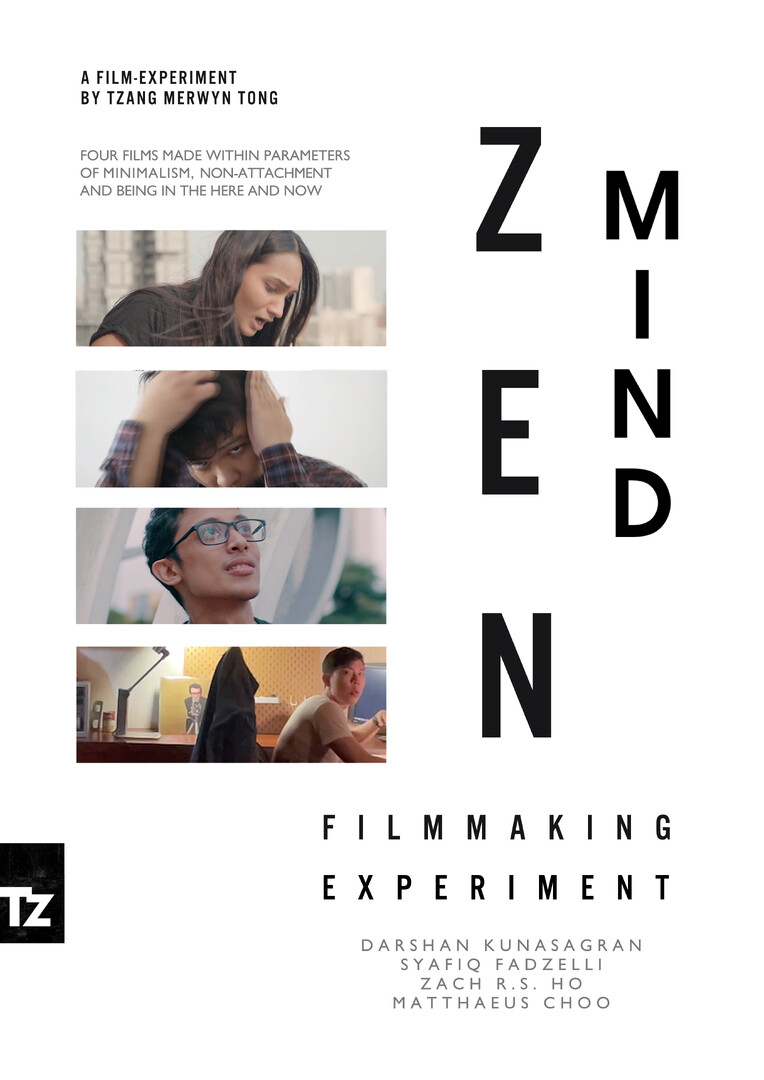
What expression elements did you use in
your project? How would you characterize your work?
It can be observed that the Zen-Mind
Filmmakers are more open to work with modes of serendipity – often using the
background and the environment as part of the storytelling. For example, in the
edit of ‘The Verge’, Darshan often cut to the wide shot when things get serious
to remind audiences that the characters are part of a bigger world... a bigger
world, that may not care about their problems, which is heartbreaking
considering that it is a film about mental breakdown.
In Matthaeus’s film, ‘The Rehearsal’ and Syafique’s film, ‘Useless’, frequent
use of the wide shot as a cut, to refer the character back to the space, reminding
us of how the character is just one in relation to the bigger picture. This reminds
me of how negative space is used in Chinese and Japanese paintings. Chinese
paintings of the Song Dynasty often feature characters as small part of the
whole picture, leaving the white of the paper unpainted to communicate elements
of nature, such as the reflection of river, the vastness of the sky, or the
size of the waterfall. Perhaps the lack of budget to fill the frame with intended
objects lead filmmakers to incorporate nature and movements in nature into the
mise-en-scene of their film.
Another observation is the incorporation of ‘mistakes’ and ‘undesirables’ as
part of the work. With the parameter of ‘non-attachment’ to fixated ideas of
what a film should be, and the limit of a 4 hour shoot, filmmakers cannot be
too obsessed about multiple takes, just to get the perfect shot, choosing
instead to move on to the next, and the next, without stopping, often making
decisions on how to use mistakes as part of the art. I liken this to
calligraphy and ink painting – where every stroke on paper is committed and
therefore part of the whole. We realise that while the ‘mistakes’ are
acknowledged, they do not take away the energy of the story, in fact, allowing
the director’s story in their mind to boldly flow uninterrupted.
Despite the under-polished production image, Zen Mind Films tend to express a
certain reverence for cinema. Zen-mind films are characterised by their raw,
unpolished imagery, infused with personal philosophy and unfiltered reflections
of the director. This style is achievable when directors tap into uninterrupted
streams of consciousness, allowing for intuition and serendipity to guide the
filmmaking process.
At what festivals have you had success?
Has the film already premiered? If so, where?
The Zen-Mind Experiment Films have garnered
recognition at various festivals, both in the independent circuit and at
fantastic film festivals. It started with the Bakunawa Fantastic Film Festival
in The Philippines, followed by screenings in Los Angeles, New York, Athens,
and most recently Tokyo.
What motivated you to become a
filmmaker?
Film is a form of personal expression,
encompassing ideas, emotions, desires, meanings, hopes, fears, and dreams.
However, due to the intertwining of filmmaking with business, filmmakers often
lose sight of its potential. Much energy and effort are devoted to pitching,
selling, and producing commercially viable films, persuading named actors to
accept roles, raising funds, securing resources, arranging festival premieres,
and securing distribution deals. I wanted the Zen parameters to help filmmakers
reconnect with their present selves and their expression, ensuring they don't
lose sight of the stories they set out to tell because stories matter.
Zen is often associated with breathwork, with meditation and
koans,
but Zen, in its essence is NOT about that. Zen is about coming back to the center. The breathwork, the meditation and
koans
are tools to help you come back to the center. What is the center of filmmaking? It is storytelling with the moving image.
Which movies are your favorites? And
why?
I love the films of Oliver Stone, Andre
Tarkovsky, Akira Kurosawa and Zhang Yimou. I have a deep respect for directors with
unwavering vision. I love filmmakers who are able to express the hard-to-express,
allowing the image to speak to the mind.
What topics do you like to deal with in
your work?
I like to explore the existential. It does
not need to be poetic. It needs to be deeply intertwined with my inner voice.
It should ask questions that I have no answers for. It should allow audience to
partake in the journey.
I recently read this quote that writers should “write the story that only they
can tell”. I resonate with that and it bothers me that filmmakers often get caught
up in telling stories that sell, rather than stories that only they can tell. I
want that for myself too in the way I tell my stories.
What genre do you like to shoot and
why?
There is no genre restriction for the Zen Mind
Experiment Films. Given what is associated with idea of Zen, I was expecting
poetic films, which are quiet, still, with voice overs. But a variety of genres
have emerged in just 2 cycles of the Zen-Mind Experiments. In this omnibus, we
have a drama (‘The Verge’ by Darshan Kunasagran), a video dairy (‘Useless’ by
Syafique Fadzelli), a black comedy (‘The Cell’ by Zach RS Ho) and an
experimental psychological horror (‘The Rehearsal by Matthaeus Choo). This is a
surprise finding of the experiment.
It could be that the filmmakers wanted to take advantage of what the Method and Experiment have to offer, to tell a story that they want to tell,– one that they do not have explicit explanation for. The Zen-Mind experiments enable them to bypass the traditional ‘script-to-picture’ process, opting instead to craft films directly from ‘mind to picture’. This approach allows for continual decision-making throughout the filmmaking process.
What project would you like to shoot
one day, what would it be about?
I would like to make a film about 'god' -
disappointed with how we are not embracing life. It can be re-imagined as a
modern-day rock n roll film with a modern-day character, because ‘god’, is
really always around, in the here and now, at the coffeeshop, by the pavement,
in the mall or at the bus station. It is an idea that I’m entertaining that I
may or may not want to bring it to form.
What do you do if you're not thinking
about a movie? What are your hobbies?
I practice Tai Chi and meditation. It helps me to reconnect with my body and
myself. Writing is so cerebral. I need activities that allow me to connect with
my physicality.
What projects do you plan to shoot in
the future?
I plan to work with different groups of filmmakers
and explore new parameters for Zen Mind Filmmaking for Cycle 3 of the Zen-Mind
Film Experiments. I want to explore how Zen-Mind Filmmaking method can further allow
the director to be in a direct relationship with the image, without the
filters, the controllers and the in-betweeners. The ultimate objective is to
liberate filmmaking from its entanglements, and for filmic expression to be
free from external control.
Learn more:
IMDB link:
https://www.imdb.com/name/nm1938697/
Zen-Mind Filmmaking on Youtube
https://youtu.be/jkqtpf9SnOM?si=u50Iht_JZi7YslOr
Zen-Mind Filmmaking on TikTok
@zenmindfilmmovement
Zen-Mind Filmmaking on IG
@zenmindfilm
Zen-Mind Filmmaking on FB
https://www.facebook.com/profile.php?id=61552568844309

